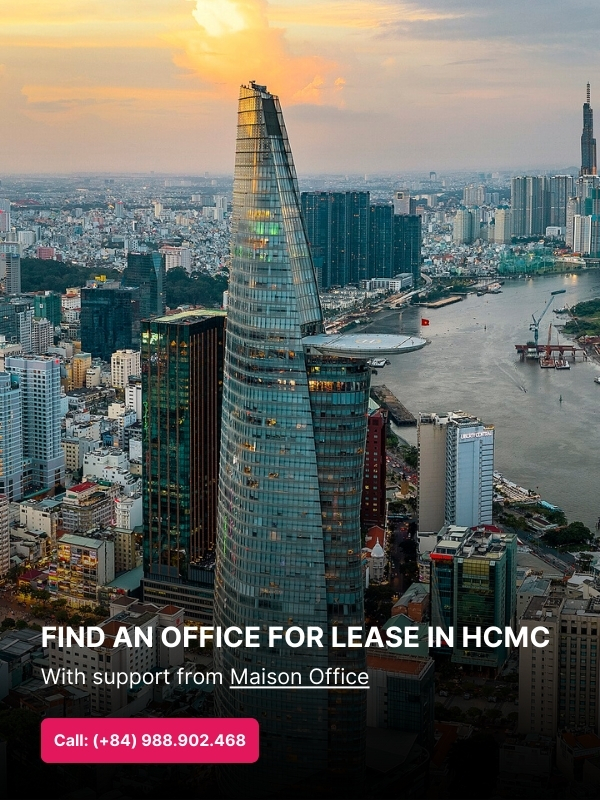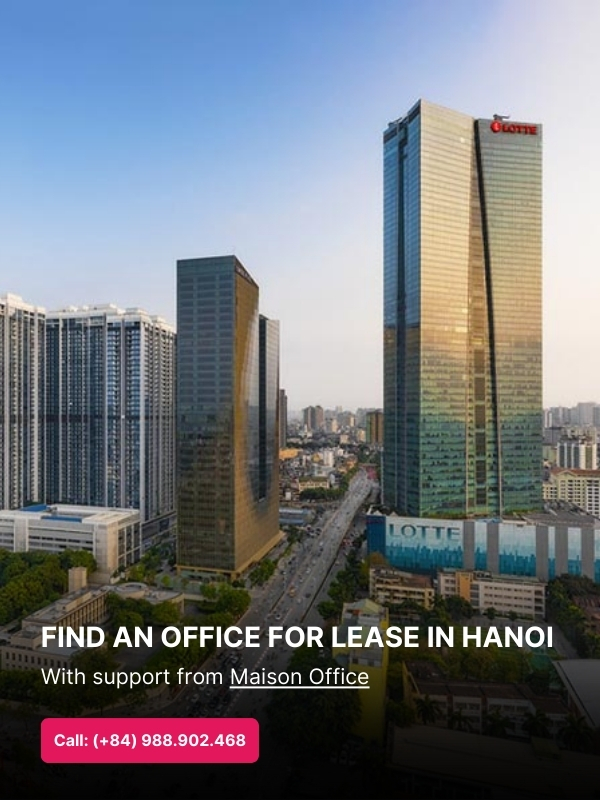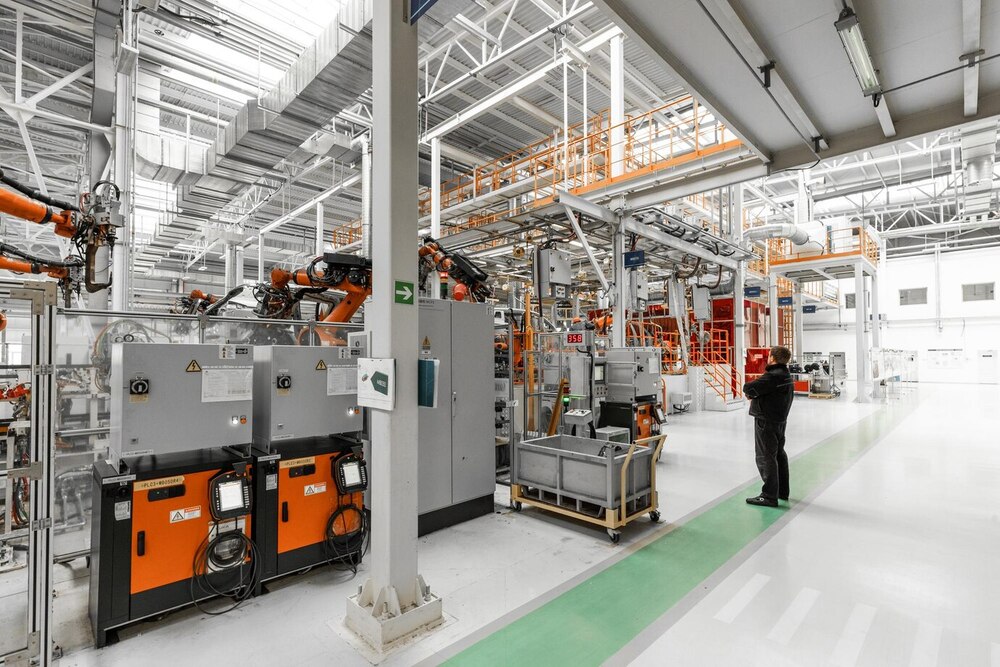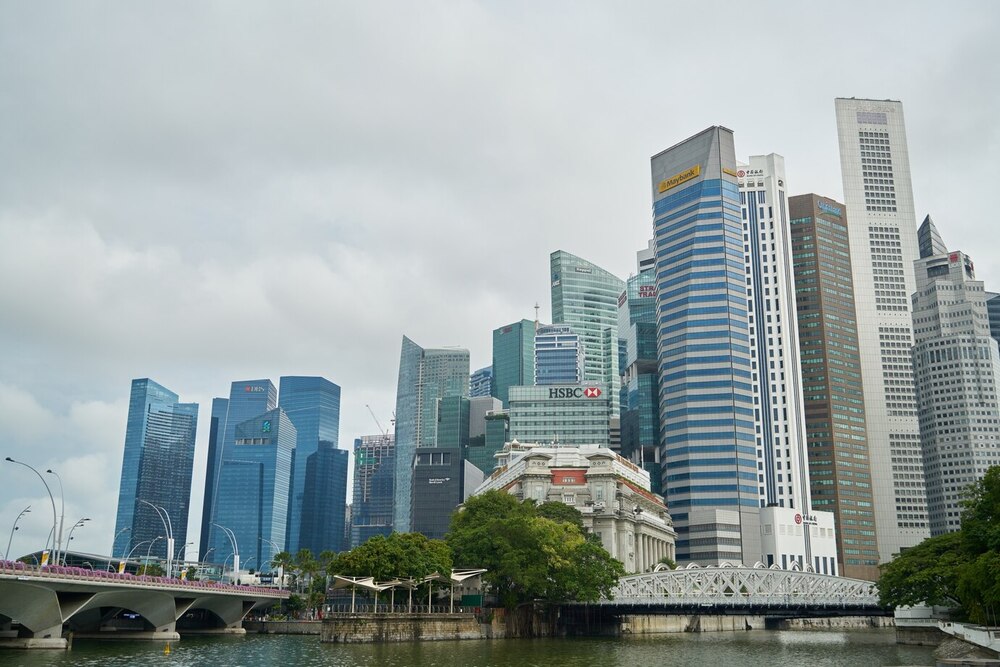FDI Company in Vietnam: Opportunities for Foreign Investors

Vietnam has become a top destination for foreign investors seeking long-term growth in Asia. With competitive labor costs, strategic location, and strong government support, setting up an FDI company in Vietnam presents significant potential. Here’s what you need to know.
 |
 |
Table of Contents
Types of FDI Enterprises in Vietnam
Vietnam has emerged as a leading hub for foreign direct investment, drawing global businesses to establish FDI companies in Vietnam. With its investor-friendly policies and growing economy, FDI Vietnam offers various enterprise structures to suit different business goals.
Wholly Foreign Owned Enterprises (WFOE)
A Wholly Foreign Owned Enterprise (WFOE) is a standout type of FDI company in Vietnam, fully owned and operated by foreign investors without any local partnership. This model empowers businesses to maintain total control over operations, making it a key driver of FDI Vietnam success. Below is a detailed breakdown of its key characteristics:
| Characteristic | Description |
| Ownership | 100% owned by foreign entities or individuals, no Vietnamese partner required |
| Liability | Limited to the capital contributed by the foreign investor(s) |
| Capital | Entirely funded by foreign sources, with no ability to issue shares for additional fundraising |
| Management | Fully controlled by foreign investor(s), offering maximum decision-making autonomy |
| Legal Compliance | Requires an Investment Registration Certificate (IRC) and Enterprise Registration Certificate (ERC) |
| Financial Setup | Must open a Direct Investment Capital Account (DICA) for capital transactions |
| Industry Suitability | Ideal for manufacturing, technology, real estate, and high-tech sectors |
| Tax Benefits | Eligible for tax incentives, especially in priority industries or economic zones |
| Market Entry | Provides direct access to Vietnam’s market without local intermediary dependence |
| Reporting | Subject to periodic reporting to Vietnamese authorities on investment activities |
Joint Ventures with Vietnamese Partners
A Joint Venture (JV) is a collaborative type of FDI company in Vietnam, formed by partnering foreign investors with Vietnamese entities or individuals. This structure allows both sides to share resources, risks, and rewards, making it a strategic choice for navigating Vietnam’s market. Below are the key characteristics of Joint Ventures in the FDI Vietnam landscape:
| Characteristic | Description |
| Ownership | Shared between foreign and Vietnamese partners, with foreign ownership ranging from 1% to 99% |
| Liability | Limited to the capital contributed by each partner, proportional to their ownership share |
| Capital | Funded jointly by foreign and local partners, with no option to issue shares publicly |
| Management | Co-managed by both parties, often through a board reflecting ownership ratios |
| Legal Compliance | Requires an Investment Registration Certificate (IRC) and Enterprise Registration Certificate (ERC) |
| Industry Suitability | Popular in manufacturing, energy, infrastructure, and sectors needing local market insight |
| Market Entry | Leverages local partner’s knowledge for smoother access to Vietnam’s market and regulations |
| Profit Sharing | Distributed based on ownership percentage or as agreed in the JV contract |
| Risk Sharing | Both partners bear risks, reducing the burden on the foreign investor alone |
| Duration | Typically limited to a set term (e.g., 50 years), renewable under Vietnam’s Investment Law |
Branch Offices of Foreign Companies
A Branch Office is a type of FDI company in Vietnam that serves as an operational arm of a foreign company, allowing it to conduct business activities without forming a separate legal entity. Unlike standalone enterprises, Branch Offices remain dependent on their parent companies abroad, making them a streamlined choice for expanding into Vietnam. Here are the key characteristics of Branch Offices in the FDI Vietnam framework:
| Characteristic | Description |
| Ownership | Fully owned and controlled by the foreign parent company, no local ownership required |
| Liability | Unlimited, with the parent company fully responsible for the branch’s debts and obligations |
| Capital | Funded directly by the parent company, no separate capital registration needed in Vietnam |
| Management | Managed by a representative appointed by the parent company, subject to Vietnamese regulations |
| Legal Status | Not a separate legal entity; operates as an extension of the foreign parent company |
| Permitted Activities | Limited to activities within the parent company’s scope, such as trading, services, or liaison |
| Legal Compliance | Requires a Branch Office License from Vietnam’s Ministry of Industry and Trade |
| Taxation | Subject to corporate income tax and other obligations, but no capital contribution tax |
| Market Presence | Enables direct market engagement without establishing a new company, leveraging parent brand |
| Duration | Typically granted for a renewable term of up to 5 years, depending on industry and approval |
Representative Offices
A Representative Office (RO) is a type of FDI company in Vietnam that acts as a liaison for a foreign parent company, focusing on market research and relationship building rather than profit-generating activities. Unlike other FDI Vietnam structures, ROs are not independent legal entities and cannot engage in direct sales or production. Below are the key characteristics of Representative Offices:
| Characteristic | Description |
| Ownership | Fully owned and controlled by the foreign parent company, no local partnership required |
| Liability | No independent liability, the parent company assumes responsibility for RO activities |
| Capital | No capital contribution required, funded by the parent company for operational expenses |
| Management | Led by a Chief Representative appointed by the parent company, subject to Vietnamese oversight |
| Legal Status | Not a separate legal entity, operates as an extension of the foreign parent company |
| Permitted Activities | Limited to market research, promotion, and liaison; no trading, manufacturing, or revenue generation |
| Legal Compliance | Requires a Representative Office License from Vietnam’s Ministry of Industry and Trade |
| Taxation | Exempt from corporate income tax due to non-profit nature, but subject to personal income tax for staff |
| Market Presence | Facilitates market entry and brand awareness without committing to full-scale operations |
| Duration | Typically licensed for a renewable term of 5 years, adjustable based on parent company needs |
Key sectors for FDI company in Vietnam
Vietnam’s booming economy and pro-investment environment have positioned it as a prime destination for FDI companies in Vietnam, fueling growth across diverse industries. From technology to real estate, FDI Vietnam thrives on sectors that attract substantial foreign capital. Among these, manufacturing emerges as a standout, capitalizing on Vietnam’s competitive advantages and global trade networks.
Within the industries, a few stand out as key for FDI company in Vietnam
Manufacturing
Manufacturing reigns as a top sector for FDI companies in Vietnam, drawing massive investments from global leaders like Samsung and LG. This industry powers FDI Vietnam by tapping into the country’s affordable labor and export-ready infrastructure. Here are the key features that define manufacturing’s role in Vietnam’s FDI landscape:
- High Investment Flow: Attracts billions of USD yearly, especially from nations like South Korea and Japan.
- Skilled Workforce: Leverages Vietnam’s large, cost-effective, and trained labor pool for efficient production.
- Export-Driven Growth: Fuels global supply chains with products like electronics, textiles, and automotive parts.
- Strong Infrastructure: Benefits from industrial parks and strategic ports for seamless logistics.
- Tax Advantages: Provides incentives for high-tech projects and operations in special economic zones.
- Key Players: Home to major brands like Samsung (electronics), Toyota (auto parts), and Nike (apparel).
- Tech Innovation: Promotes advanced manufacturing methods to enhance quality and output.
- Global Market Access: Opens doors to ASEAN and beyond through Vietnam’s free trade agreements.
- Policy Backing: Supported by government initiatives to boost industrial and FDI development.
- Eco-Friendly Shift: Embraces sustainable practices to meet rising global environmental demands.
Manufacturing is a sector that is gaining attention because it brings many incentives to the industry
Real estate
Real estate is a vital sector for FDI companies in Vietnam, attracting substantial capital from investors eyeing the country’s booming property market. With rapid urban expansion and a rising middle class, this industry plays a key role in FDI Vietnam success. Here are the defining features of real estate in Vietnam’s FDI ecosystem:
- Investment Surge: Draws billions of USD annually, especially from Singapore, Japan, and South Korea.
- Urban Growth: Fueled by Vietnam’s fast-paced urbanization and demand for residential and commercial spaces.
- Infrastructure Boost: Benefits from government-led projects like highways, metro systems, and smart cities.
- Diverse Projects: Includes luxury condos, industrial parks, office buildings, and resort developments.
- Tax Incentives: Offers benefits for large-scale projects in economic zones or new urban areas.
- Key Investors: Features players like CapitaLand (Singapore), Mitsubishi (Japan), and Vingroup partnerships.
- Market Demand: Driven by a growing population, foreign expatriates, and tourism expansion.
- Legal Framework: Governed by Vietnam’s Land Law and Investment Law, with easing foreign ownership rules.
- Profit Potential: Promises high returns due to rising property values and rental yields.
- Sustainability Focus: Increasingly incorporates green building standards to attract eco-conscious investors.
Real estate sector is increasingly developing in Vietnam market
Technology and innovation
The technology and innovation sector is a rising star for FDI companies in Vietnam, attracting global tech giants and startups alike with its dynamic ecosystem. This industry is pivotal to FDI Vietnam, supporting the country’s ambition to become a regional tech hub. Below are the key characteristics of technology and innovation in Vietnam’s FDI framework:
- Investment Growth: Captures increasing FDI from countries like the US, Japan, and South Korea in tech-driven projects.
- Skilled Talent: Leverages Vietnam’s young, educated workforce, proficient in IT and engineering fields.
- Digital Push: Aligns with government initiatives like the National Digital Transformation Program by 2030.
- Key Areas: Encompasses software development, fintech, AI, IoT, and semiconductor manufacturing.
- Tax Benefits: Offers incentives for high-tech investments, especially in science parks and innovation zones.
- Major Players: Features companies like Intel (chip production), FPT (software), and Samsung R&D centers.
- Startup Ecosystem: Supports a growing network of tech startups, backed by venture capital and incubators.
- Global Integration: Benefits from Vietnam’s free trade agreements, enhancing tech export opportunities.
- Infrastructure: Bolstered by expanding 5G networks and smart city projects in Hanoi and Ho Chi Minh City.
- Innovation Focus: Prioritizes R&D and sustainable tech solutions to meet global demands.
The technology and innovation sector is a fast-growing driver of FDI in Vietnam
Renewable Energy
Renewable energy is a fast-growing sector for FDI companies in Vietnam, capitalizing on the nation’s push toward green energy solutions. With its vast potential for solar, wind, and hydropower, this industry is a vital part of FDI Vietnam, supporting both environmental goals and economic development. Here are the standout features of renewable energy in Vietnam’s FDI landscape:
- Investment Boom: Attracts significant FDI from Europe, China, and Thailand for clean energy projects.
- Natural Resources: Harnesses Vietnam’s abundant sunlight, strong winds, and extensive river systems.
- Government Support: Backed by policies like the National Power Development Plan, targeting 50% renewable energy by 2050.
- Key Subsectors: Focuses on solar power, onshore/offshore wind, hydropower, and biomass energy.
- Tax Incentives: Provides benefits for renewable projects, especially in remote or priority regions.
- Major Players: Features firms like Ørsted (wind), Trung Nam Group (solar), and GE Renewable Energy.
- Energy Demand: Meets rising domestic needs and export potential as industries expand.
- Global Alignment: Supports Vietnam’s Paris Agreement commitments and carbon-neutral goals.
- Infrastructure Growth: Benefits from upgraded grids and energy storage solutions for scalability.
- Job Creation: Generates employment in rural areas, boosting local economies alongside FDI.
Renewable energy is a sector that supports both environmental and economic development goals
Steps to Establish an FDI Company in Vietnam
Market Research and Feasibility Study
Before initiating the setup process, conducting a thorough market research and feasibility study is a crucial first step for any FDI company in Vietnam. This phase helps foreign investors assess the viability of their business idea, understand the local regulatory environment, and identify potential risks and opportunities in the Vietnamese market.
Key areas of analysis include:
- Industry trends and market demand in Vietnam
- Legal restrictions and market access under local investment laws
- Competitive landscape and potential barriers to entry
- Cost structure, including labor, infrastructure, and taxes
A well-executed feasibility study also provides a solid foundation for preparing the Investment Registration Certificate (IRC) application and business plan, both of which are required by Vietnamese authorities.
Market research is an important step in preparing for starting a FDI company in Vietnam
Choosing the Right Business Structure
Selecting the appropriate business structure is a critical step when setting up an FDI company in Vietnam. The structure you choose will impact your level of control, tax obligations, operational flexibility, and compliance requirements.
The most common structures for FDI Vietnam include:
- Wholly Foreign-Owned Enterprise (WFOE): Full ownership by foreign investors, offering maximum control. Ideal for companies with long-term commitment and clear operational capacity.
- Joint Venture: A strategic partnership between a foreign investor and a Vietnamese entity. This model is often chosen in restricted sectors where full foreign ownership is not permitted or where local insight is vital.
- Business Cooperation Contract (BCC): A contractual form of collaboration without creating a separate legal entity. Suitable for short-term or project-based cooperation.
- Representative Office: Allows foreign companies to establish a legal presence in Vietnam without engaging in direct profit-generating activities. Commonly used for market research or liaison purposes.
For any FDI company in vietnam, choosing the right entry model is not just a legal step—it’s a strategic business decision that can directly influence success in the Vietnamese market.
Preparation and Submission of Documentation
Once the business structure is finalized, the next critical step for establishing an FDI company in Vietnam is preparing and submitting the required legal documentation. This phase ensures your business complies with Vietnamese investment laws and regulations.
Key documents typically include:
- Application for Investment Registration Certificate (IRC)
- Proposal for investment project, including objectives, scale, and estimated capital
- Proof of legal status of the foreign investor (e.g. business registration certificate or passport)
- Financial capacity documents, such as bank statements or audited financial reports
- Office lease agreement or proof of business address in Vietnam
- Draft charter of the company
- List of founding shareholders or members
These documents must be submitted to the Department of Planning and Investment (DPI) or relevant local authority, depending on the project location.
Accuracy and completeness are crucial — any errors or missing information can cause significant delays. This step forms the foundation of every FDI Vietnam project, enabling the investor to obtain the necessary licenses and proceed with business registration.
Post-Establishment Compliance
After successfully setting up an FDI company in Vietnam, foreign investors must fulfill a series of post-establishment compliance obligations to ensure smooth and legal business operations. Non-compliance can lead to administrative penalties or suspension of business activities.
Key compliance tasks include:
- Tax registration and reporting: Register for corporate income tax (CIT), value-added tax (VAT), and other applicable taxes. Submit monthly, quarterly, and annual tax reports as per regulations.
- Initial capital contribution: Inject the registered charter capital within the committed timeframe (usually 90 days from licensing date), via a legally opened foreign-invested capital account in Vietnam.
- Accounting and audit requirements: Maintain proper accounting books in accordance with Vietnamese Accounting Standards (VAS). Annual financial statements must be audited and submitted to authorities.
- Labor registration: Declare employee information, register labor contracts, and ensure contributions to social insurance, health insurance, and unemployment insurance.
- Investment activity reporting: Submit quarterly and annual reports on project performance to the Department of Planning and Investment (DPI).
Sustained success for any FDI company in Vietnam depends not only on market entry, but also on consistent legal and financial compliance. Investors who prioritize strong governance and transparency are better positioned to scale operations and build long-term trust in the Vietnamese market.
Challenges and Considerations for Foreign Investors
Taxation
One of the key challenges for any FDI company in Vietnam is navigating the country’s complex and evolving tax system. While Vietnam offers several tax incentives to attract foreign investment, compliance remains a critical concern for long-term success.
Main taxes applicable to FDI companies include:
- Corporate Income Tax (CIT): The standard CIT rate is 20%, but preferential rates (10% or 17%) may apply for projects in high-tech, education, healthcare, or underdeveloped areas.
- Value-Added Tax (VAT): Typically levied at 10%, with exemptions or reduced rates (5%) for specific goods and services.
- Foreign Contractor Tax (FCT): Applies to payments made to foreign entities that do not have a legal presence in Vietnam but provide services or goods. This includes both VAT and CIT components.
- Personal Income Tax (PIT): Applies to both foreign and local employees, with progressive rates up to 35%.
- Import and Export Duties: Relevant to businesses engaged in cross-border trade. Some goods may benefit from exemptions under Vietnam’s free trade agreements.
Tax challenges to consider:
- Frequent regulatory updates: Tax laws and interpretations in Vietnam can change rapidly, requiring constant monitoring.
- Complex documentation: Strict invoicing and reporting standards make proper bookkeeping essential.
- Transfer pricing compliance: Applicable to related-party transactions; failure to comply may trigger audits and penalties.
To minimize tax-related risks, many foreign investors partner with local accounting or legal firms for ongoing support. A solid tax strategy is not just about minimizing liabilities — it ensures your FDI Vietnam operation is sustainable, scalable, and compliant from day one.
Vietnam offers a wealth of opportunities for FDI companies in Vietnam, blending cost advantages with a strategic market position. As FDI Vietnam continues to grow, foreign investors can tap into dynamic sectors and supportive policies to drive long-term success. With careful planning, the potential for profitability and impact is immense.
Once your FDI company is established, choosing the right office location is key to operational success. Maison Office, a trusted commercial leasing agent in Vietnam, offers expert support in finding your ideal office for lease in Ho Chi Minh City or office for lease in Hanoi.










